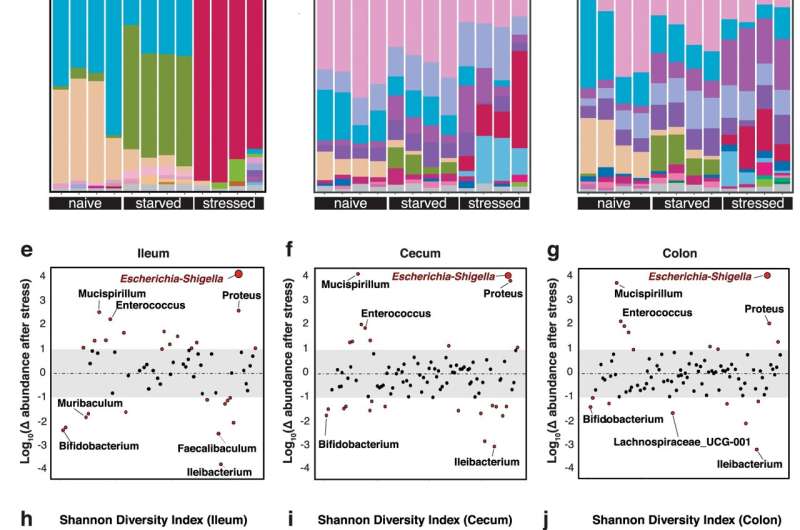January 10, 2022 report
Link found between stress and Crohn's disease

A team of researchers from McMaster University, the Michael G. DeGroote Institute for Infectious Disease Research, and the Farncombe Family Digestive Health Research Institute, has found a link between stress and Crohn's disease. In their paper published in the journal Nature Communications, the group describes research they conducted with stressed mice and measurements of invasive gut bacteria and how their findings related to Crohn's disease flareups.
Crohn's disease is an autoimmune disease in which needless inflammation in the lining of the intestines leads to problems for the epithelial cells, which in turn leads to pain, problems eating and also blood and/or mucus in stool samples. For people without the disease, signals from the immune system keep the lining healthy by properly secreting mucus, which repels harmful microbes. Prior research has suggested that one of the main contributors to flareups of the disease is an imbalance of bacteria in the gut microbiome. In this new effort, the researchers have found that stress can lead to such an imbalance, which in turn leads to a flare-up.
The work involved stressing lab mice (by restraining them overnight and/or by not feeding them for 16 hours) and then measuring the levels of several types of bacteria in their guts. The team also measured stress hormone levels.
In looking at their data, the researchers found a connection between increases in stress hormone levels and increases in some types of gut bacteria, particularly Enterobacteriaceae, which include E. coli. The researchers suggest that stress leads to a weaker immune response in the gut, allowing more harmful types of bacteria to proliferate. And when such gut bacteria multiply, they can do harmful things to the gut lining, such as incite ulcers and other lesions.
The researchers found that when they gave the test mice drugs to suppress the production of stress hormones, immune response improved, bad bacteria numbers dropped and the symptoms of Crohn's disease lessened. They note that their work is still in the preliminary stages with much more work to be done—but they also suggest that their work could someday lead to new ways to treat people suffering from Crohn's disease.
More information: Christopher R. Shaler et al, Psychological stress impairs IL22-driven protective gut mucosal immunity against colonising pathobionts, Nature Communications (2021). DOI: 10.1038/s41467-021-26992-4
© 2022 Science X Network



















